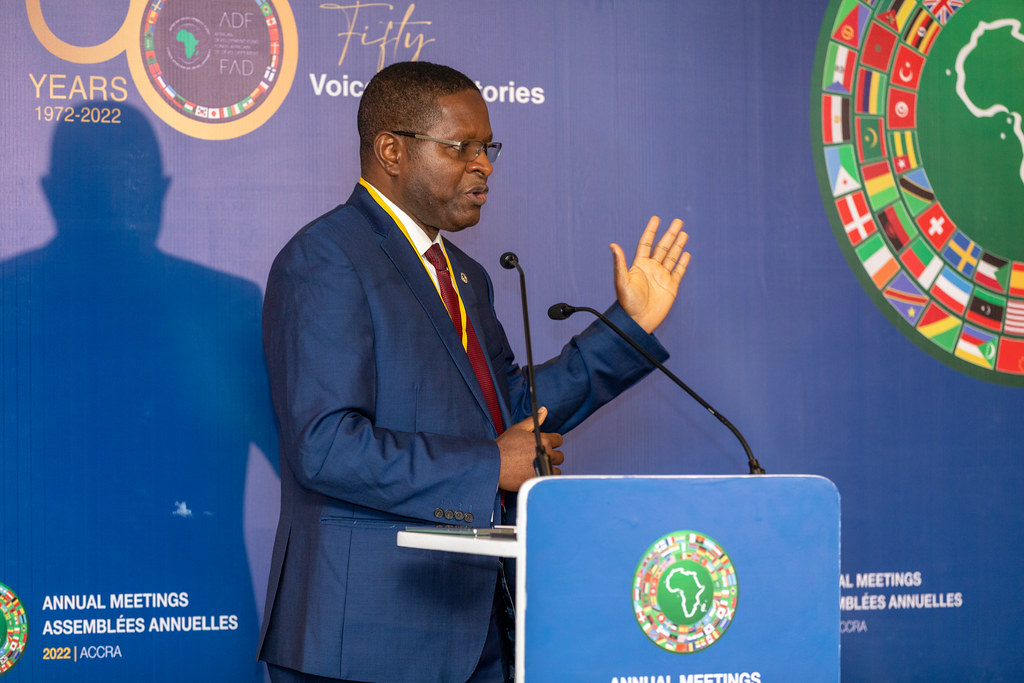
Africa needs $74 billion for debt service in 2024 Nexovant

Prof. Kevin Urama, Chief Economist and Vice President of Economic Governance and Knowledge Management at the African Development Bank (AfDB), has revealed that African countries will require $74 billion in 2024 to service their debt obligations.
Urama made this known during the launch of the Debt Management Forum for Africa (DeMFA) and its inaugural policy dialogue held in Abuja on Monday.
The event was themed “Making Debt Work for Africa: Policies, Practices, and Options.”
Highlighting the gravity of Africa’s debt burden, Urama explained that the $74 billion debt service requirement for 2024 marks a significant rise from $17 billion in 2010. Of this amount, $40 billion is owed to private creditors, representing 54% of the total debt service.
“According to the African Economic Outlook Report (AEO) 2024, in 2024, African countries are expected to spend around 74 billion dollars on debt service, up from 17 billion dollars in 2010, of which 40 billion dollars is owed to private creditors, representing 54 per cent of total debt service,” he stated.
Urama further cautioned that the actual figure could be higher when hidden debts and contingent liabilities are considered. He noted that “20 African countries are in debt distress or at high risk of debt distress,” with refinancing risks expected to rise for countries with significant bullet redemptions.
Debt sustainability challenges
The AfDB Chief Economist underscored the disparity between developed and developing nations in managing debt burdens.
“While developed countries can sustain high levels of debt with low debt service burdens, developing countries, including in Africa, particularly the most vulnerable among them, are devoting an increasingly large proportion of their fiscal resources to servicing public debt,” he said.
Urama criticized the slow and unsustainable nature of debt relief and restructuring measures, which fail to address the structural issues underpinning Africa’s debt sustainability challenges.
He also highlighted the persistent liquidity challenges Africa faces, with annual debt refinancing needs projected to reach $10 billion between 2025 and 2033. He added that African Eurobond yields surged to 15% in 2023, more than double the 2019 rate, making refinancing efforts more challenging.
“These high yields are driven by a combination of domestic and external factors, as well as unfair risk perceptions,” Urama explained.
Global financial inequalities
Addressing inequalities in global financial flows, Urama noted Africa’s paradox of high borrowing costs despite relatively low default risks.
He referenced a United Nations Development Programme (UNDP) estimate that Africa pays an “Africa Risk Premium” of $24 billion annually in excess interest due to unfair sovereign risk perceptions.
“This deprives the region of critical resources for development,” he added.
Urama called for Africa-led solutions to address the continent’s debt challenges. He emphasized the need to rethink borrowing models and prioritize productive investments
Debt resolution
Ms. Allison Holland, Assistant Director of the Strategy, Policy, and Review Department at the International Monetary Fund (IMF), stressed the importance of addressing private-sector debt resolution before involving public-sector creditors.
“The big challenge here is, why don’t we move forward with the private sector first? Wouldn’t this be faster?” she added.
Holland added that IMF interventions often depend on the readiness of official creditors to engage.
“If the private sector is unable to restore debts, the IMF is restricted from moving forward. Official creditors remain a critical part of the process,” she said.
Dr. Anthony Simpasa, Director of the Macroeconomic Policy, Forecasting, and Research Department at AfDB, attributed Africa’s rising debt to the increasing frequency of climate shocks.
“Many countries, particularly those vulnerable to climate shocks, have been forced to borrow heavily to finance climate-related projects. These projects, aimed at adaptation and mitigation, constitute the largest share of instruments used for climate financing on the continent,” he noted.
Follow us for Breaking News and Market Intelligence.




Looking to Invest in Real Estate? Discover Nexovant Today!
Nexovant is Nigeria’s leading real estate platform, offering seamless solutions for property listings, real estate investment, and property management. Whether you’re searching for the best properties in Nigeria, seeking opportunities with our NexoVest real estate investment platform, or exploring innovative tools like Morena AI, Nexovant is your trusted partner in real estate success.
We specialize in:
Real estate investment opportunities in Nigeria.
Affordable property listings for sale and rent.
AI-powered solutions for smarter property searches.
Real estate development and management services.
Join thousands of investors and property owners today. With Nexovant, you can buy, sell, rent, or invest in some of the best real estate in Nigeria.
Explore Nexovant:
📍 Visit us: www.nexovant.com
💡 Learn more about NexoVest: Your gateway to profitable real estate investments.
🌟 Discover Morena AI: Revolutionizing property search and analytics.
Keywords:
Best real estate platform in Nigeria
Real estate investment opportunities in Nigeria
Property for sale and rent in Nigeria
Real estate development and property management
AI in real estate Nigeria
Affordable real estate investments
Top property listing websites in Nigeria
Stay ahead in the real estate market with Nexovant – the future of real estate innovation in Africa.
Source














